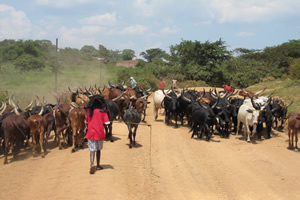|
Imagine recovering from major surgery or suffering from advanced cancer without any painkillers. That’s the reality for patients in half the countries in the world. But unlike with so many global health problems, this one is not about money or a lack of drugs. Morphine, the gold standard for medical pain treatment, is simple and cheap to make and distribute. So why are so many people left in pain? The International Reporting Program traveled to Ukraine, Uganda and India to find out, and to document the human toll of this hidden human rights crisis. It turns out a combination of bureaucratic hurdles and the chilling effect of the global war on drugs are largely to blame, leaving humanitarians scrambling to work outside the law — or change the law — to bring relief to suffering patients all over the world. The Pain Project has produced documentaries on this issue for CBS Sunday Morning, Al Jazeera People & Power, and Global 16×9, reaching millions of people and gaining international media attention.
|
Diederik Lohman, a senior researcher with Human Rights Watch, explains why lack of access to pain medication is an abuse of human rights.
A World of Pain

 in <b>/home/inter190/public_html/wp-content/themes/softshell/header.php</b> on line <b>69</b><br />
http://www.internationalreporting.org/pain/files/2012/01/pain-header-logo1.jpg)




